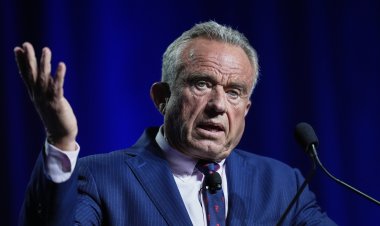DeSantis wants to make it easier to execute criminals — with an eye toward Supreme Court
Former President Donald Trump's allies have criticized the governor's criminal justice record.


TALLAHASSEE, Fla. — Ahead of a likely presidential bid, Gov. Ron DeSantis is leaning into a reliable campaign message: I'm tough on crime.
At the Republican governor’s urging, Florida’s GOP-controlled Legislature last week agreed to repeal a law that requires a unanimous jury verdict to sentence a defendant to death, a response to outrage over jurors who last fall blocked the death penalty for convicted Parkland killer Nikolas Cruz.
State legislators will also soon allow the death penalty to be imposed on someone convicted of raping a child despite a narrowly-decided U.S. Supreme Court decision from 2008 that found such punishments unconstitutional.
The two death penalty measures are just a part of a series criminal justice bills that DeSantis called for ahead of this year’s session. He sharply criticized the Parkland jury decision that resulted in Cruz getting a life sentence, but in a running series of appearances to promote his book ahead of an expected presidential run, he also lashed out at blue states and “soft-on-crime” prosecutors operating in other parts of the country.
“We are holding people accountable,” DeSantis told Republicans gathered Thursday morning at a Lincoln Day breakfast held in Akron, Ohio. “We reject soft-on-crime polices like eliminating cash bail or jailbreak legislation that lets dangerous criminals out of jail before they have finished their sentence. We see the plague across the country of left-wing district attorneys getting elected.”
Republicans with an eye toward running for president see fighting crime as a good issue for them, after the message resonated with voters in the midterms. Former Vice President Mike Pence on Friday, for example, called for mass shooters to be executed within months.
DeSantis’ record on criminal justice is something that allies of former President Donald Trump have already hit the governor on. They criticized him for signing a bill in 2019 that raised the amount that must be stolen for someone to be charged with a felony. The Make America Great Again PAC last month claimed that “while President Trump is the only presidential candidate calling for the death penalty for drug dealers, DeSantis is giving a pass to thieves.”
DeSantis’ criticism of prosecutors and crime policies isn’t new. Last August, he suspended Hillsborough County State Attorney Andrew Warren from office after Warren signed a pledge where he stated he would not enforce the state’s abortion laws, among other things. Warren, who was elected to office, is challenging his suspension in both federal and state court, contending that he was removed for political reasons.
After carrying out two executions in his first term, DeSantis has now signed three death warrants so far this year. The execution of Louis Gaskin, who had been dubbed the “ninja killer” and was convicted of killing a couple in 1989, went ahead this past week. Darryl Barwick, who was convicted of murdering a Panhandle woman in 1986, is scheduled to be executed May 3.
The death penalty legislation, however, would likely place Florida into a high-stakes legal debate over criminal punishment in the nation and could eventually wind up before the U.S. Supreme Court.
Currently, Alabama is the only state that actively imposes the death penalty and doesn’t require a unanimous jury recommendation. But Alabama requires at least 10 out of 12 jurors to agree to the death penalty, while the proposal Florida lawmakers passed on Thursday would allow the death penalty to be imposed by a vote of 8-to-4 or greater.
Supporters of the measure have repeatedly cited the example of Cruz — who gunned down 17 people at Marjory Stoneman Douglas High School in 2018 — as a reason to make the change. Three jurors in his case voted against recommending the death penalty nearly five years after the tragedy.
“If a monster like that who commits heinous crimes does not deserve and get the death penalty than what do we have a death penalty for?” said Sen. Blaise Ingoglia, the GOP sponsor of the measure.
Ingoglia’s bill is on its way to the governor’s desk after the Florida House voted 80-30 on Thursday in favor of the legislation. The Senate approved the bill last month by a 29-10 vote.
The Florida House this week also approved another death penalty measure that would allow eight of 12 jurors to recommend the death penalty for someone who rapes a child under the age of 12. The legislation includes a clause that says state and federal court decisions that barred the death penalty in these types cases was “wrongly decided and an egregious infringement of the states' power to punish the most heinous of crimes.”
“If you commit a serious crime, you’re going to face the consequences of your actions,” House Speaker Paul Renner said. “While diversion and rehabilitation are important to providing individuals who come in contact with the justice system an opportunity to correct their behavior, people must be held accountable.”
Both death penalty measures have drawn support from many Democrats, including Senate Democratic Leader Lauren Book. Book’s district includes Parkland, and she was a member of the school safety commission created in the aftermath of the shooting at Marjory Stoneman Douglas.
Book called the Cruz decision a “gross injustice.” She acknowledged that the legislation could help DeSantis during a presidential run, but added that his national ambitions have been the overarching theme of this year’s legislative session.
“Everything coming out is to help him to do something he wants to do and further his agenda,” Book said.
Some Democrats, however, questioned pushing bills that appear at odds with current state and federal court rulings.
“It’s a dangerous, slippery slope,” argued state Rep. Mike Gottlieb, a South Florida Democrat and criminal defense attorney, about child rape bill.
Republicans contend that changing from a unanimous jury to a supermajority should pass constitutional scrutiny, but Renner and other GOP legislators concede that the law regarding rapists could likely wind up before the nation’s high court.
But they pointed out that the previous Supreme Court decision striking down the death penalty for child rapists was handed down by a 5-4 majority, including from liberal justices who are no longer on the panel. The 2008 decision at the time was criticized by both Barack Obama and John McCain as they campaigned for president.
“This is not murder — it’s worse,” said state Rep. Danny Alvarez, an attorney and Republican, during debate on the bill. “When you rape a child, you kill that child’s spirit. That rape lasts with every moment that child closes their eyes. And you tell me ‘oh it doesn’t meet the standard.’…If you will not rise with a child you will fall with the rapist … there should be no debate.”












